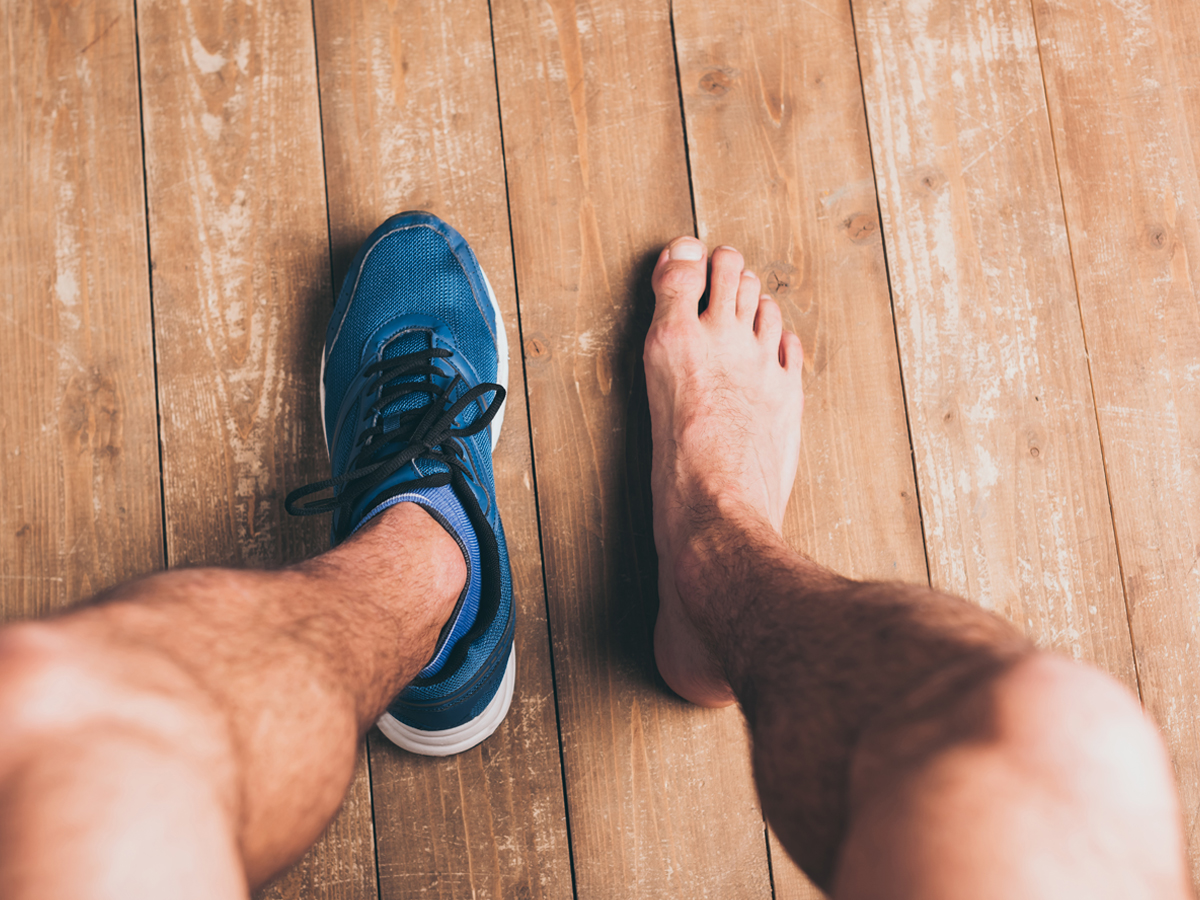

Aside from managing injuries, improving running performance is one of the reasons patients come to us for orthotics. We understand the many goals that runners have – from maintaining their comfort over long distances when their feet start to tire and technique may drop off, to overcoming the vulnerabilities created by their gait or foot type to keep running pain-free – to gaining a competitive edge and beating their personal bests.
Here is how orthotics can work to help runners run better, for longer – and help leave them feeling great on their feet after their run.
How Can An Orthotic In My Shoe Affect The Way I Run?
When you stand on an orthotic, it becomes your new ground, holding your bones, joints and muscles up in different ways to how they would be if your foot was flat on the ground. This means that when you progress through a step, from your heel to your forefoot, your muscles, tendons and joints will be working differently which may help to:
- Reduce the load on your soft tissue by creating a mechanical advantage
- Adjust poor foot biomechanics to perform more optimally
- Improve your motor control
- Absorb more shock from the impact of running
- Improve your proprioception and balance
- Improve your lower limb alignment
These changes alter the way you move during running, which can in turn help aid your technique, improve your performance, and help prevent painful overuse.
How Much Of A Difference Can An Insole Really Make?
The key here is that it’s not just an insole that’s doing the hard work. It’s having a medical device carefully prescribed and created uniquely for your feet that is crucial to their success. Every pair of custom foot orthotics we create is made with a wealth of wisdom and experience by our Podiatrists following a comprehensive assessment of your gait, foot and leg biomechanics, strength and movement of your joints and muscles, and much more. While the orthotics do the work, the reason they’re able to work the way they do is because your podiatrist has designed them in a very specific and intricate way for your feet.
What About Foot Beds From The Pharmacy – Can They Help My Running?
Whilst off-the shelf foot beds can be popular, they take a one-size-fits-all philosophy, assuming that every foot shape and arch height and length is the same and can benefit from the same thing – mainly cushioning from a soft or gel-like insert. This is absolutely not the case – and relying on these orthotics may greatly limit your running potential compared to custom foot orthotics.
While foot beds may help you walk more comfortably from the cushioning, they are not designed to alter your foot biomechanics to achieve a specific function. They are also not designed to withstand the forces placed through the feet during running which can see their soft cushioning quickly wear down.
Does It Matter Which Running Shoes I Wear With My Orthotics?
Yes it does. Good, supportive shoes can do a great job of both supporting your foot and ankle, and providing a great foundation for your orthotics. Worn-down or flimsy shoes may not support the intended action of your orthotics, or worse, may instead work against them.
For example, if your shoes are heavily worn down on the inside border, they may be tipping your foot inwards to place it in a flatter position when you run. When you place your orthotics in these shoes, they will lower this edge of the orthotic so you won’t be gaining the level of arch support that your podiatrist has prescribed for you.
I’ve Had Other Orthotics And They Haven’t Helped My Running. Will Yours?
While we can’t vouch for the custom prescriptions of other podiatrists, we do stand by our own. We follow up with you to check on your orthotics and can make adjustments to your orthotics in your appointment to help you get the most out of them and gain the best results. If there is a problem with your orthotics, we will work with you to help you get the best results.
What Else Can I Do To Help Improve My Running?
- Prioritise strengthening your muscles and improving your flexibility. While endurance is important, having strong muscles without tightness and restrictions will help optimise your performance
- Stay well hydrated. Hydration is extremely important for sports performance, yet greatly underrated. Studies show that losing 5% or more of our body weight in water can reduce our performance by 30%
- Use active recovery and passive recovery appropriately. Practicing active recovery was shown in a study to help runners run for three times longer during their next runner compared to runners who practiced passive recovery
- Refuel quickly – you want to assist your muscles to repair and rebuild efficiently after your run, which you can do by eating within 30 minutes of your run
- Have your gait assessed by your podiatrist. Sometimes, we run a certain way for so long that our technique gets lost and bad habits start to form that may slow us down or tire us out. Having your gait assessed by an experienced sports podiatrist can help identify and correct any gait problems and technique issues
I’m Getting Pain When Running, What Should I Do?
Book in with your podiatrist as early as possible. Due to the forceful nature of running, small pains and aches can quickly progress and worsen if they’re not looked after and cared for. If you need a team that thoroughly understands running and running injuries, we’re here to help.
Book your appointment online here or call us on 1800-FOOT-DR


